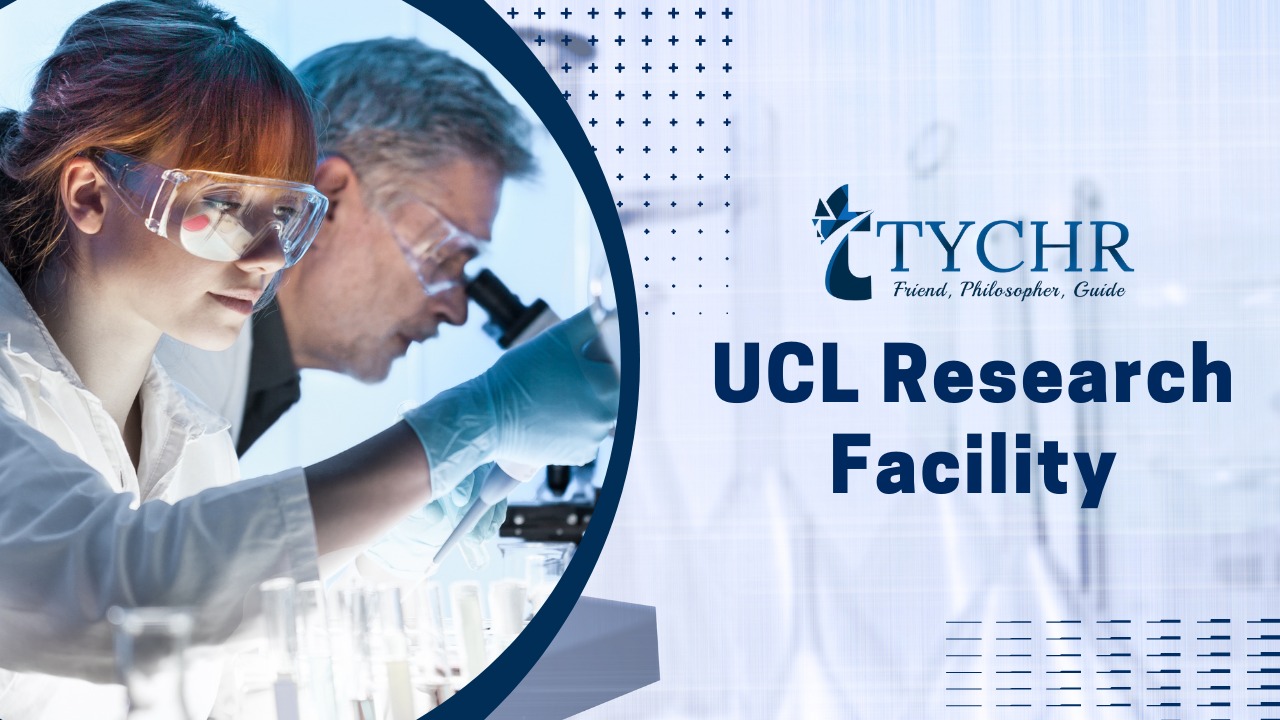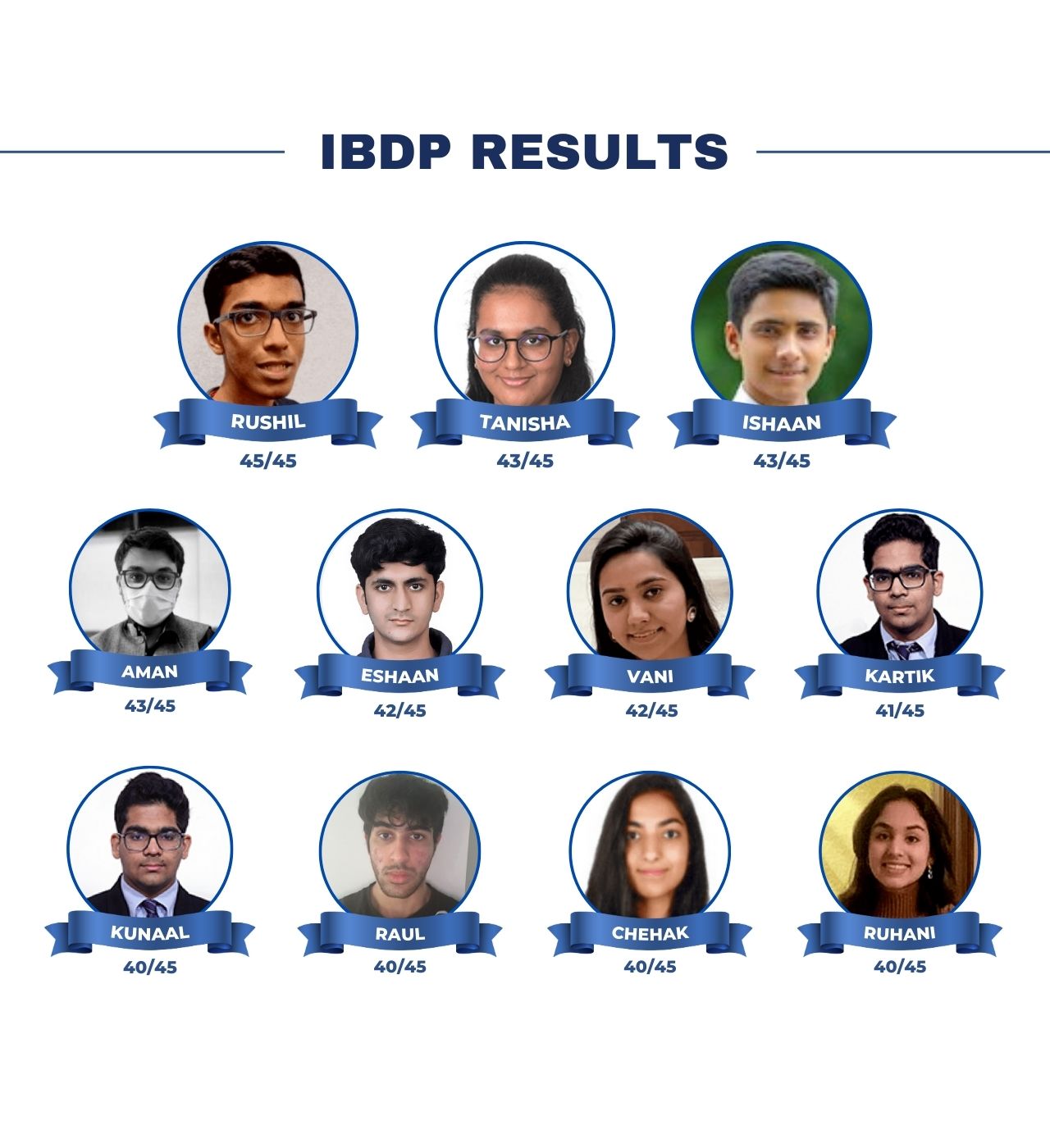Table of Contents
University College London (UCL) stands at the forefront of global academic excellence, renowned for its pioneering research and innovation across various disciplines. UCL boasts a wide range of state-of-the-art research facilities that foster groundbreaking discoveries and provide an ideal environment for intellectual exploration. In this blog, we will delve into the remarkable research facilities and programs offered at UCL, shedding light on the institution’s commitment to advancing knowledge and shaping the future.
UCL Research Facilities:
Bloomsbury Research Institute:
The Bloomsbury Research Institute at UCL serves as a vibrant hub for multidisciplinary research. It provides cutting-edge laboratory spaces that facilitate collaborative research across various fields, including biomedical sciences, genomics, molecular biology, and immunology. The institute’s advanced equipment and resources empower researchers to explore complex scientific questions and develop innovative solutions. Within the Bloomsbury Research Institute, scientists have access to state-of-the-art technologies and instrumentation that enable them to conduct groundbreaking research. The laboratories are equipped with high-performance microscopes, advanced DNA sequencing and analysis tools, molecular biology platforms, and cellular imaging systems. These resources allow researchers to investigate biological processes at the molecular and cellular levels, unraveling the intricacies of life and disease.
The collaborative nature of the institute fosters interdisciplinary research, bringing together experts from different fields to address complex scientific challenges. The cross-pollination of ideas and expertise fuels innovation and breakthroughs in research. By promoting collaboration and knowledge sharing, the Bloomsbury Research Institute creates an environment conducive to transformative discoveries.
Advanced Imaging:
UCL’s Advanced Imaging facilities offer researchers access to a range of state-of-the-art imaging technologies. The Advanced Imaging Suite is a dedicated space that houses cutting-edge equipment, including electron microscopes, super-resolution microscopes, and confocal microscopes. These imaging tools enable scientists to delve into the intricate details of cellular and molecular structures with exceptional clarity and resolution.
Electron microscopy allows researchers to visualize ultrastructural details of cells and tissues, providing insights into their organization and function. Super-resolution microscopy techniques push the limits of optical microscopy, surpassing the traditional resolution limits and revealing subcellular details with unprecedented precision. Confocal microscopy enables the visualization of three-dimensional structures and dynamic processes in living cells and tissues.
The Advanced Imaging facilities play a vital role in diverse research areas, including neuroscience, materials science, bioengineering, and cellular biology. Scientists can investigate the architecture of the brain, study the properties of materials at the nanoscale, observe cellular processes in real-time, and explore the interactions between molecules. These imaging technologies drive scientific advancements and contribute to a deeper understanding of complex phenomena.
UCL Institute of Archaeology:
The UCL Institute of Archaeology is a renowned research facility dedicated to archaeological exploration. It houses specialized laboratories, conservation studios, and an extensive collection of artifacts, providing researchers with a unique platform to study ancient civilizations and uncover hidden historical narratives.
The institute’s laboratories are equipped with cutting-edge analytical tools and techniques for archaeological science. Researchers can analyze ancient materials, such as pottery, metals, and textiles, using advanced methods like spectroscopy, isotopic analysis, and DNA analysis. These techniques shed light on ancient production methods, trade networks, and human migrations, enriching our understanding of past societies.
The conservation studios at the UCL Institute of Archaeology employ experts in the preservation and restoration of cultural heritage. They utilize state-of-the-art equipment and methods to conserve artifacts and archaeological sites, ensuring their long-term preservation and accessibility for research purposes.
The UCL Institute of Archaeology’s expertise extends to archaeological science, cultural heritage, and archaeological conservation. Researchers collaborate closely with colleagues in history, anthropology, and related fields, generating interdisciplinary insights into human history and cultural evolution.
UCL Institute of Neurology:
The UCL Institute of Neurology stands as a world-leading center for neuroscience research, housing cutting-edge facilities that enable investigators to unravel the complexities of the human brain. The institute provides state-of-the-art equipment and resources for neuroimaging, electrophysiology, and computational modeling.
Neuroimaging technologies available at the UCL Institute of Neurology include functional magnetic resonance imaging (fMRI), positron emission tomography (PET), and magnetoencephalography (MEG). These non-invasive imaging methods allow researchers to visualize brain activity, connectivity, and structural changes associated with various cognitive processes and neurological disorders. Advanced image analysis tools further aid in the interpretation of complex brain data.
Electrophysiology labs equipped with high-density EEG and intracranial recording systems enable scientists to study neural activity at different scales, from individual neurons to large-scale networks. These techniques help uncover the mechanisms underlying brain function, cognition, and neurological disorders.
The computational modeling capabilities at the UCL Institute of Neurology provide researchers with tools to simulate and understand the brain’s complex dynamics. Computational models aid in studying neural circuits, predicting disease progression, and developing new therapeutic interventions.
The collaborative environment of the UCL Institute of Neurology encourages interdisciplinary research, bridging the gap between basic neuroscience and clinical applications. Scientists collaborate closely with clinicians and industry partners to translate discoveries into innovative treatments and therapies for neurological disorders.
UCL Quantum Science and Technology Institute (UCLQ):
The UCL Quantum Science and Technology Institute (UCLQ) stands at the forefront of quantum research, focusing on harnessing the power of quantum science for technological advancements. UCLQ provides researchers with specialized laboratories for quantum computing, quantum communication, and quantum materials.
The quantum computing laboratories at UCLQ feature state-of-the-art hardware platforms, including superconducting qubits, trapped ions, and topological quantum systems. These facilities enable researchers to develop and test quantum algorithms, explore quantum error correction techniques, and advance the field of quantum information processing.
Quantum communication laboratories at UCLQ facilitate research on secure quantum communication protocols and quantum cryptography. Researchers investigate quantum key distribution, quantum teleportation, and quantum secure direct communication, aiming to develop secure and tamper-proof communication channels.
UCLQ’s facilities also focus on quantum materials, which form the building blocks of quantum technologies. These laboratories provide researchers with tools to synthesize, characterize, and manipulate materials with quantum properties, such as superconductors, topological insulators, and quantum dots. Understanding and controlling these materials are crucial for developing future quantum devices and technologies.
The UCLQ’s research facilities play a crucial role in shaping the future of computing, cryptography, and secure communications. By harnessing the unique properties of quantum systems, researchers at UCLQ contribute to advancements that have the potential to revolutionize information processing and communication.
UCL Grand Challenges:
UCL Grand Challenges is a flagship initiative that encompasses a series of interdisciplinary research programs aimed at addressing global issues. Recognizing that many societal challenges require collaborative approaches, UCL Grand Challenges bring together researchers from diverse disciplines to tackle complex problems. These programs focus on key areas such as global health, sustainable cities, cultural understanding, and transformative technology.
In the realm of global health, UCL researchers collaborate to tackle pressing issues such as infectious diseases, mental health, and global inequalities in healthcare. By combining expertise from fields such as medicine, epidemiology, anthropology, and social sciences, UCL Grand Challenges aims to develop innovative solutions, promote health equity, and improve healthcare outcomes worldwide.
Sustainable cities are another focus of UCL Grand Challenges. Researchers from various disciplines, including urban planning, architecture, engineering, and social sciences, come together to address the challenges of urbanization, climate change, and sustainable development. The aim is to create more livable, resilient, and environmentally friendly cities by integrating interdisciplinary research, policy engagement, and community involvement.
Cultural understanding is a crucial area of investigation within UCL Grand Challenges. Researchers explore the diverse cultural landscapes of the world, examining issues such as cultural heritage preservation, social cohesion, and the impact of globalization. By fostering interdisciplinary dialogues, UCL Grand Challenges aims to promote cross-cultural understanding, preserve cultural diversity, and address the complex challenges arising from cultural interactions.
Transformative technology is another major theme within UCL Grand Challenges. Researchers explore the potential of emerging technologies such as artificial intelligence, robotics, and data science to drive innovation and societal transformation. By bringing together experts from various disciplines, UCL Grand Challenges seeks to harness the power of technology to address pressing societal issues, drive economic growth, and enhance quality of life.
Also read: Breaking Down The Meaning Of Interdisciplinary Studies: A Comprehensive Guide For Students
UCL East:
UCL East is a pioneering research and innovation hub located in the Queen Elizabeth Olympic Park. This expansion of UCL’s research capacity creates an exciting ecosystem for collaboration between academia, industry, and the local community. UCL East focuses on research themes that are critical to societal progress, including the creative and digital economy, sustainable cities, and human health and wellbeing.
The creative and digital economy program at UCL East explores the intersections between creativity, technology, and entrepreneurship. It aims to foster innovation and economic growth by supporting research, startups, and collaborations that leverage digital technologies, creative industries, and cultural heritage. UCL East provides a vibrant environment where researchers, artists, designers, and entrepreneurs can come together to develop transformative ideas and solutions.
Sustainable cities is another key research theme at UCL East. Researchers investigate innovative approaches to urban planning, transportation, energy systems, and environmental sustainability. Through collaborations with policymakers, industry partners, and local communities, UCL East aims to shape the future of cities, making them more sustainable, inclusive, and resilient.
Human health and wellbeing is a fundamental focus of UCL East. Researchers explore interdisciplinary approaches to understanding human health, addressing issues such as population health, mental health, and healthy aging. By integrating research from medical sciences, social sciences, and technology, UCL East seeks to develop innovative interventions, policies, and technologies that promote individual and societal wellbeing.

UCL Knowledge Lab:
The UCL Knowledge Lab is a dedicated research center within UCL that focuses on digital media, education, and learning technologies. The lab brings together researchers from disciplines such as education, psychology, computer science, and design to explore the integration of technology into teaching and learning.
The research conducted at the UCL Knowledge Lab investigates how digital media and technologies can enhance educational practices, transform learning experiences, and address educational challenges in the digital age. Researchers explore topics such as online learning, digital literacy, educational games and simulations, data-driven learning analytics, and the impact of technology on teaching methodologies.
The interdisciplinary nature of the UCL Knowledge Lab enables collaborations between researchers, educators, policymakers, and industry partners. By engaging in research-practice partnerships, the lab aims to bridge the gap between research findings and educational practice, informing the development of evidence-based strategies for effective technology integration in education.
The UCL Knowledge Lab’s research initiatives are not limited to traditional educational settings but also extend to informal and lifelong learning contexts. Researchers investigate the use of technology in museums, libraries, community centers, and other informal learning environments, exploring how digital media can enhance engagement, accessibility, and knowledge transfer.
UCL Centre for Advanced Biomedical Imaging (CABI):
The UCL Centre for Advanced Biomedical Imaging (CABI) is a world-leading research facility dedicated to biomedical imaging. CABI brings together experts from physics, biology, chemistry, and engineering to develop novel imaging techniques and applications for biomedical research and clinical practice.
Researchers at CABI utilize advanced imaging technologies to explore biological processes at various scales, from molecules and cells to whole organisms. The interdisciplinary nature of the center allows for innovative approaches to imaging, combining cutting-edge hardware, software, and data analysis methods.
CABI’s imaging capabilities include a wide range of modalities, such as magnetic resonance imaging (MRI), positron emission tomography (PET), computed tomography (CT), optical imaging, and ultrasound. These imaging techniques provide valuable insights into the structure, function, and metabolism of biological systems, aiding in the understanding of normal physiology and disease processes.
The collaboration between CABI and healthcare professionals enables the translation of research findings into clinical applications. The center works closely with clinicians to develop imaging techniques that can improve diagnostics, guide treatment decisions, and monitor the effectiveness of therapies.
University College London (UCL) stands as a global leader in research, offering an impressive array of cutting-edge facilities and programs. From advanced imaging and archaeology to neuroscience and quantum science, UCL’s research facilities provide an ideal environment for groundbreaking discoveries. The institution’s commitment to interdisciplinary collaboration and its emphasis on addressing global challenges through research initiatives such as UCL Grand Challenges and UCL East demonstrate its impact on society. As UCL continues to push the boundaries of knowledge and innovation, it remains a beacon of academic excellence and a driving force in shaping the future.








